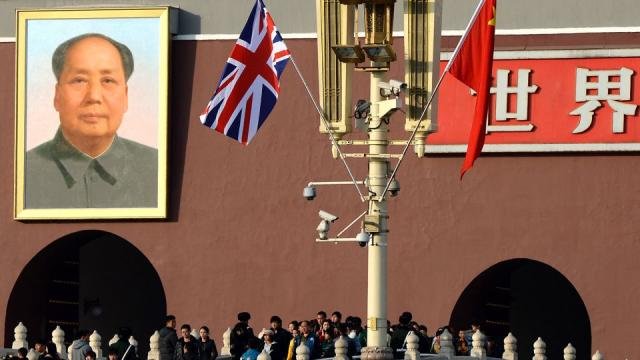China’s Ministry of State Security has accused the head of a foreign consultancy, identified only by the surname Huang, of spying for Britain’s MI6 intelligence service. The agency claimed that Huang, who had been working with MI6 since 2015, was directed to travel to China to collect intelligence and had provided the UK with 17 pieces of intelligence, including national secrets.
The allegations come amid heightened tensions between China and the UK over espionage claims and mark the first time that China has publicly accused the UK of espionage. The British government has not yet responded to the allegations. The case has put a spotlight on the consulting sector, which has been the target of China’s recent anti-espionage crackdown.

According to the Chinese intelligence agency, Huang had been collaborating with MI6 since 2015, operating under their directives. The allegations suggest that he was tasked with traveling to China to gather sensitive intelligence, ultimately providing the UK with 17 pieces of classified information, including national secrets. This revelation unveils a clandestine six-year espionage operation that has now come to the forefront.
UK’s Silent Stance Amid Accusations of China
As of now, the British government has not responded to the explosive allegations made by China. The silence from the UK authorities adds an air of mystery and uncertainty to the situation. The lack of an official statement leaves room for speculation on how the UK will navigate this intricate web of espionage accusations.
This case has thrust the consulting sector into the spotlight, becoming a focal point of China’s recent anti-espionage crackdown. The revelation of a consultant allegedly collaborating with a foreign intelligence agency raises questions about the sector’s vulnerability to infiltration and misuse. It prompts concerns about the potential exploitation of consultants for espionage purposes, necessitating a closer examination of the industry’s security measures.

The espionage allegations against the unidentified consultant, referred to only as Huang, have brought forth a geopolitical storm, with China directly accusing the UK of espionage activities. According to China’s Ministry of State Security, Huang had been actively working with MI6 since 2015, undertaking covert missions to collect crucial intelligence within China’s borders.
The specifics of the alleged intelligence exchange are concerning, with China claiming that Huang provided the UK with 17 pieces of information, some of which are deemed to be national secrets. The intricate details of the intelligence shared, along with the duration of the alleged operation, underscore the depth of the espionage activities that have unfolded over the past six years.
The lack of an immediate response from the British government adds an air of suspense to the situation. Observers are keenly watching for the UK’s official stance on the accusations and whether it will acknowledge or refute China’s claims. The silence may be strategic, indicating a cautious approach to delicate diplomatic relations, or it may be a sign that the UK is carefully assessing the evidence before formulating a response.
 The broader implications of this case extend beyond bilateral tensions, shining a spotlight on the consulting sector. China’s recent anti-espionage crackdown has targeted various industries, and the consulting sector now finds itself under scrutiny. The accusation that a foreign consultant was allegedly manipulated for espionage purposes raises concerns about the sector’s susceptibility to infiltration and exploitation.
The broader implications of this case extend beyond bilateral tensions, shining a spotlight on the consulting sector. China’s recent anti-espionage crackdown has targeted various industries, and the consulting sector now finds itself under scrutiny. The accusation that a foreign consultant was allegedly manipulated for espionage purposes raises concerns about the sector’s susceptibility to infiltration and exploitation.
Consultants often work across borders and industries, gaining access to sensitive information and interacting with individuals at various levels of government and business. As such, they become potential targets for intelligence agencies seeking to exploit their positions for covert operations. This case emphasizes the need for robust security measures within the consulting sector to safeguard against espionage activities and protect sensitive information.
The global consulting industry may now face increased scrutiny and regulatory measures as governments seek to mitigate the risks associated with espionage. Companies operating in this space may need to reassess their security protocols, implement stricter background checks, and enhance training to ensure that consultants are aware of the potential risks and consequences of engaging in espionage activities.
The espionage allegations involving a foreign consultant, accused of spying for MI6, have escalated tensions between China and the UK. The case has not only brought the two nations to the brink of a diplomatic crisis but has also cast a shadow over the consulting sector, highlighting the need for heightened security measures and vigilance in an era where information is a prized commodity with significant geopolitical implications. As the world watches for the UK’s response, the fallout from this case is likely to reverberate across international relations and the consulting industry for the foreseeable future.
Read also: Defense Chief Austin Vows Transparency Amid “hidden” hospitalisation











